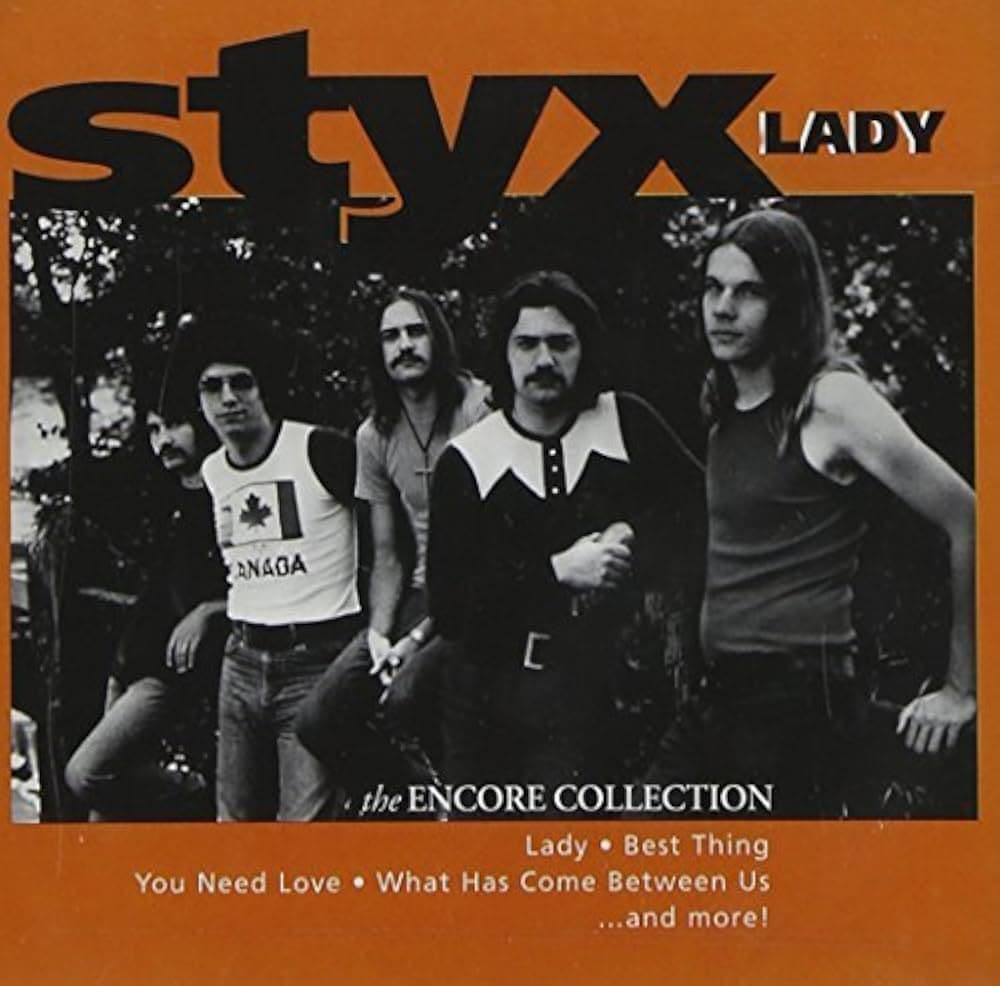
“Lady” – Styx’s Tender Breakthrough Ballad
Released in 1973 on the album Styx II, “Lady” became the first major hit for the band Styx, marking the beginning of their rise to fame. Written by lead vocalist and keyboardist Dennis DeYoung, the song reached #6 on the Billboard Hot 100 in 1975, after it was re-released by their new record label, A&M Records. Despite its modest start, “Lady” would go on to become a defining ballad, both for the band and for the burgeoning genre of progressive rock with a pop edge.
The song showcases Dennis DeYoung‘s talent for blending rock and classical influences, laying the foundation for what would later become Styx’s signature style. At its core, “Lady” is a love song, but it stands apart from other romantic tracks of the era due to its lush arrangement, earnest lyrics, and intricate dynamics. It’s a deeply personal piece, written by DeYoung for his wife Suzanne, giving the song an authenticity that resonates with listeners.
A Romantic Power Ballad Ahead of Its Time
The gentle piano intro immediately sets a tender, reflective tone, inviting listeners into an emotional journey. As DeYoung’s expressive vocals begin with the opening lines, “Lady, when you’re with me I’m smiling,” the sincerity of the song becomes clear. The lyrics are a heartfelt tribute to a lover whose presence brings happiness, calm, and meaning. The directness of the words, combined with the soft piano melody, draws listeners into an intimate moment, making it feel personal and relatable.
What makes “Lady” stand out is the way it builds in intensity. After the quiet opening verses, the song swells with energy, thanks to the introduction of lush vocal harmonies and guitar riffs. This crescendo gives the track a symphonic quality, foreshadowing the arena-rock power ballads that would dominate the late ’70s and ’80s. Styx’s signature blend of rock instrumentation with theatrical flair is already on display here, demonstrating their ability to balance tenderness with bombast.
Chart Success and Impact
Though “Lady” initially received little attention upon its first release in 1973, it gained momentum after increased radio play in the band’s hometown of Chicago. This grassroots success prompted a re-release, and the song eventually cracked the Top 10 in 1975, giving Styx their first major hit. It wasn’t just a commercial victory—it was a turning point for the band, allowing them to break free from the Chicago club scene and embark on a national tour.
The success of “Lady” also signaled the beginning of Styx’s evolution into one of the most popular arena rock bands of the late 1970s and early 1980s. The song’s emotional depth and symphonic style would influence future hits such as “Come Sail Away” and “Babe”, cementing Styx’s place in rock history.
Enduring Legacy
“Lady” remains a beloved piece in Styx’s catalog, frequently featured in their setlists to this day. Its balance of sincerity and musical complexity ensures that it continues to resonate with new generations of fans. DeYoung’s soaring vocal performance, combined with the band’s skillful instrumentation, captures a sense of timeless romance that has lost none of its charm over the years.
The song is also a testament to the power of persistence—had Styx not believed in “Lady” and pursued its re-release, they might never have achieved the mainstream success that followed. It’s a reminder that sometimes, great art needs time to find its audience.
In sum, “Lady” is more than just a hit—it’s a touchstone in Styx’s career and a standout example of early rock balladry. With its combination of emotional sincerity, musical sophistication, and theatrical flair, it paved the way for both the band’s future success and the rise of the power ballad as a rock staple. Even today, the song endures as an essential listen for anyone who appreciates heartfelt lyrics wrapped in a lush, symphonic rock arrangement.